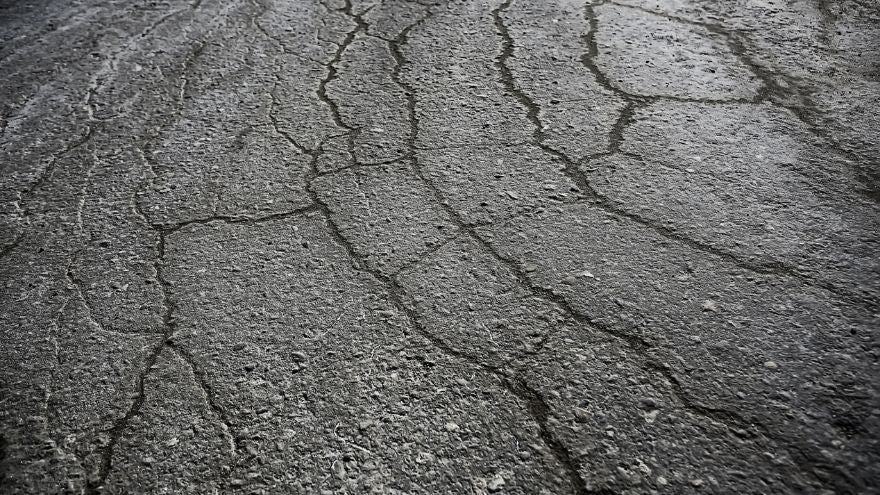March 23, 2021

Asphalt is the perfect material for driveways, parking lots, roads, and more, but what do you do when it starts to wear down? If your asphalt pavement is cracking and worn-down, you’ll have to make the necessary repairs. Once you have, there’s something else you’ll need to do—investigate the cause of the cracking so that you can prevent it from happening again. Let’s look at some of the top causes of cracks in asphalt pavement and how you can fix these problems to prevent future deterioration.
Asphalt is impressively waterproof, but that doesn’t mean it’s completely immune to moisture. Moisture will wash away the pavement’s gravel and sand base, which can lead the surface layer to shift and break. This shifting and breakage lead to the formation of cracks. Water can affect your pavement’s surface, too. It can make its way into crevices, creases, and dents and start exerting pressure on the pavement from above. Adequate drainage will divert water away from your pavement, but if you don’t have good drainage, a sealant will also help keep your pavement dry. Since water can pool in any dents or cracks, you’ll want to fill them up as soon as possible to avoid further damage.
The winter snow can cause moisture damage, and the summer sun can cause heat damage. Heat can dry up the pavement and cause the materials in the aggregate to break down, resulting in cracks and other damage. Temperature changes that vary rapidly, like those in spring, can also wreak havoc on your pavement. The heat can melt snow, forming water—but if it’s cold again the next day, the water that just melted can freeze under the pavement’s surface, weakening the pavement’s sub-base or resulting in overexpansion. The easiest way to protect your pavement from extreme temperatures is to sealcoat it.
Another one of the top causes of cracks in asphalt pavement is ground movement. The ground below us is continuously shifting, either due to seasonal conditions like frost and thaw or disasters like earthquakes and severe thunderstorms. When the ground moves, the asphalt’s gravel base will shift and put pressure on the asphalt, which can result in cracks or potholes. Unfortunately, you can’t stop the ground from shifting. You can, however, protect your asphalt pavement by keeping it in good condition. Pavement in good condition will hold up to the elements and other crack-causing factors much better than pavement that hasn’t had proper maintenance.
If you’re looking for supplies to fill, repair, and maintain your asphalt pavement, NAC Supply has what you need. For fixing up any cracks in your pavement, come and check out our asphalt crack-filler machines for sale. We also carry the supplies you’ll need to seal coat your driveway to protect it from moisture and extreme temperatures. Come shop with us today!
Comments will be approved before showing up.
February 09, 2026
January 14, 2026
January 07, 2026
When you start a new striping project, you'll need the right materials for the job. There are several factors to weigh before you purchase your paint.